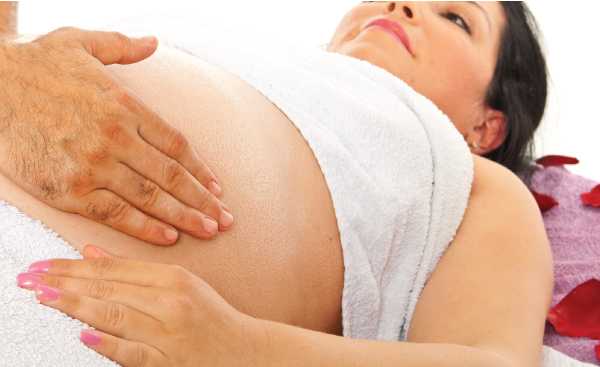PREGNANT? Give yourself a massage treat
Pregnancy should be a joyous time and there is no better way to heighten that happiness than engaging in a little indulgence. Unwind with the ancient arts of massage and


Pregnancy should be a joyous time and there is no better way to heighten that happiness than engaging in a little indulgence. Unwind with the ancient arts of massage and reflexology for a total mind and body make-over that is sure to leave you with an enviable glow.
First things first, let’s get some facts straight. As it turns out, that little word of advice from your best friend or your auntie that getting a massage while pregnant is a no-no is a myth. According to Oak Therapy Spa beautician and pregnancy masseuse Risper Lwamba, a massage during pregnancy is not only a yes- yes, but a win-win too.
“It is safe to massage a pregnant lady provided care is taken because of her condition and it may even help in inducing labour,” she says.
However, for many women and even professionals, the fear of this relaxation technique has sipped in due to various reasons. Many practitioners recommend that one should engage in the activity once they reach their second trimester. This is because the first trimester is considered to be the most at risk for miscarriages. However, there has been no research findings linking massage to miscarriage but fear of lawful action, citing negligence or malpractice leading to miscarriage, has most practitioners running scared.
The key, therefore, is to find a certified pregnancy masseuse and as Risper explains, “Pregnant women need special attention including the position they lie in while undergoing the massage. It is not recommended to lie on one’s tummy or back. Lying on the side is the best position. Additionally, use special pregnancy pillows for the head, feet and back for proper support. Avoid deep tissue massages, which tend to be more aggressive and intrusive. Instead, apply pressure lightly.”
“Pregnant women experience a lot of pressure on their back and feet from the weight of supporting the pregnancy so hands, shoulders, feet and the lower back are definitely good areas to massage albeit with extreme care on the back. The tummy is a tricky area to massage but one can do so if they are careful to use soft, slow circular motions when massaging it,” Risper adds.
According to experts, the benefits of massage range from reducing muscle tension and preparing women for the impending musculoskeletal changes of pregnancy, to relieving fatigue, improving sleep, increasing levels of the “feel-good” hormones serotonin and dopamine, and increasing blood flow throughout the body.
If you cannot come around to indulging in a full body massage, there’s a slight compromise in reflexology. Reflexology refers to a type of nerve stimulation based on the premise that various body parts correspond to different pressure points located entirely on the hands and feet. To achieve the nerve stimulation, one needs to know and understand which pressure point on the hands and feet correspond to which body organ. According to Susan Kirimo, a reflexologist with Oak Therapy Spa, the technique, though not embraced by many, can make a world of difference in altering not only one’s body, but also mind.
“Reflexology is like housekeeping. Just like you clean your house, rid it of dust and other unwanted materials, reflexology acts the same way by removing blockages in the body while stimulating the nerves and blood flow to their optimum levels, which in turn improves organ performance and overall body functioning. Often times, the blockages are caused by stress which sometimes manifests itself through the organs and hence you find someone suffers from conditions such as constipation,” says Kirimo.
The practice is not only recommended for people suffering from chronic diseases like arthritis and diabetes, but pregnant women as well. Just like massage, extra care has to be taken not to over stimulate the body and hence, pressure points on the hands and feet corresponding to the stomach are avoided. However, shoulders, hands, eyes, temples, lungs and knees are good areas for stimulation, as Kirimo articulates.
Reflexology and massage are not recommended in the event a woman suffers from a high-risk pregnancy, high blood pressure, nausea and morning sickness among other conditions, to avoid over stimulation, which can lead to premature labour.
To comment on this and other articles go to:
facebook:ParentsMagazine/
www.parentsafrica.com/
twitter:@parentsafrica
Published in December 2015





